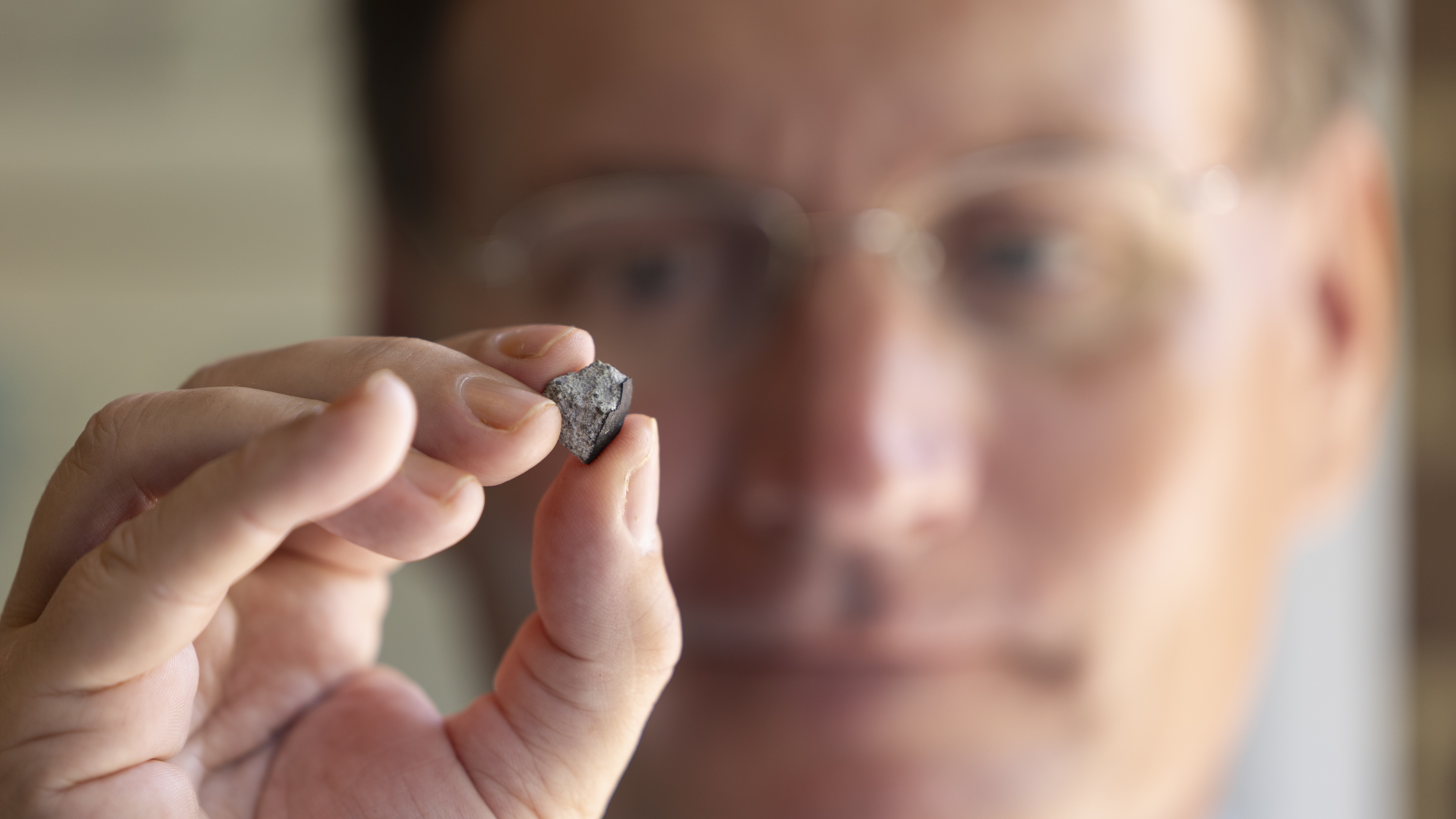A space rock that punched a hole through a Georgia resident’s home earlier this summer may be 20 million years older than our planet, researchers say.
The meteorite streaked across the sky as a fireball on June 26, just before a piece of it struck a house in the city of McDonough. A researcher at the University of Georgia (UGA) studied material recovered from the house and found that the meteorite formed around 4.56 billion years ago — making it about 20 million years older than Earth.
“This particular meteor that entered the atmosphere has a long history before it made it to the ground of McDonough,” Scott Harris, a researcher in the geology department at UGA, said in a statement.
Harris’ analysis revealed that the newly named McDonough meteorite came from beyond Mars and is linked to a much larger asteroid that broke up around half a billion years ago.
“It belongs to a group of asteroids in the main asteroid belt between Mars and Jupiter that we now think we can tie to a breakup of a much larger asteroid about 470 million years ago,” Harris said. “But in that breakup, some pieces get into Earth-crossing orbits, and if given long enough, their orbit around the sun and Earth’s orbit around the sun end up being at the same place, at the same moment in time.”
Related: Perseid meteor shower 2025: How to see ‘shooting stars’ despite the full moon
The McDonough meteorite made quite an entrance on June 26. NASA’s Meteoroid Environment Office estimated that the 3-foot-wide (1 meter) object was travelling at 29,000 mph (47,000 km/h), while the American Meteor Society received more than 240 sighting reports of a fireball across the Southeast. Many people also heard and felt a sonic boom, which some mistook for an earthquake, the Smithsonian Magazine reported shortly after the event.
The meteorite slowed down a lot as it traveled through our atmosphere and broke apart as it got closer to the ground, but it was still moving fast enough to cause damage on impact.
“When they [meteorites] encounter Earth, our atmosphere is very good at slowing them down,” Harris said. “But you’re talking about something that is double the size of a 50-caliber shell, going at least 1 kilometer per second [0.6 miles per second]. That’s like running 10 football fields in one second.”
When part of the meteorite hit the house in McDonough, it went straight through the roof, ceiling, and heating, ventilation and air conditioning (HVAC) duct. It left a dent in the living room floor and made a noise and vibration that sounded like a close-range gunshot, according to the statement. The piece of rock was pulverized into fragments on impact, scattering space dust around the room that the resident of the house is still finding today.
Watch On
Harris used optical and electron microscopy to analyze 0.8 ounces (23 grams) of rock fragments recovered from the house. Based on this analysis, he believes that the meteorite is a stony meteorite (chondrite) that’s low in metal content, according to the statement.
Researchers will continue to analyze the rock fragments at UGA, while some additional pieces that landed in the area will go on display at the Tellus Science Museum in Cartersville.
Meteorites are relatively rare in Georgia; this is only the 27th documented in the state’s history and the sixth to have been witnessed falling, according to the statement. However, Harris noted that they are now being recorded more frequently.
“This is something that used to be expected once every few decades and not multiple times within 20 years,” Harris said. “Modern technology in addition to an attentive public is going to help us recover more and more meteorites.”
